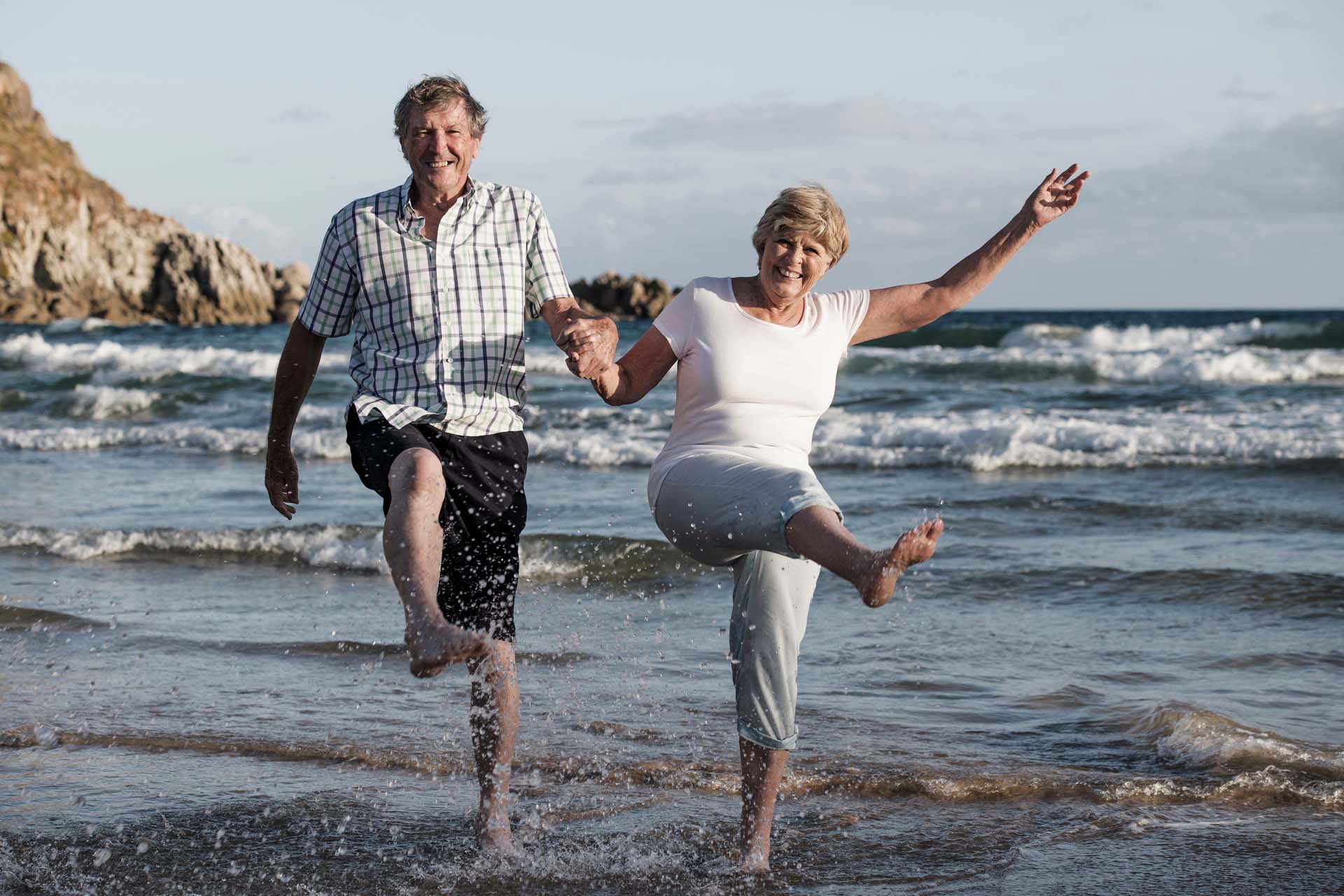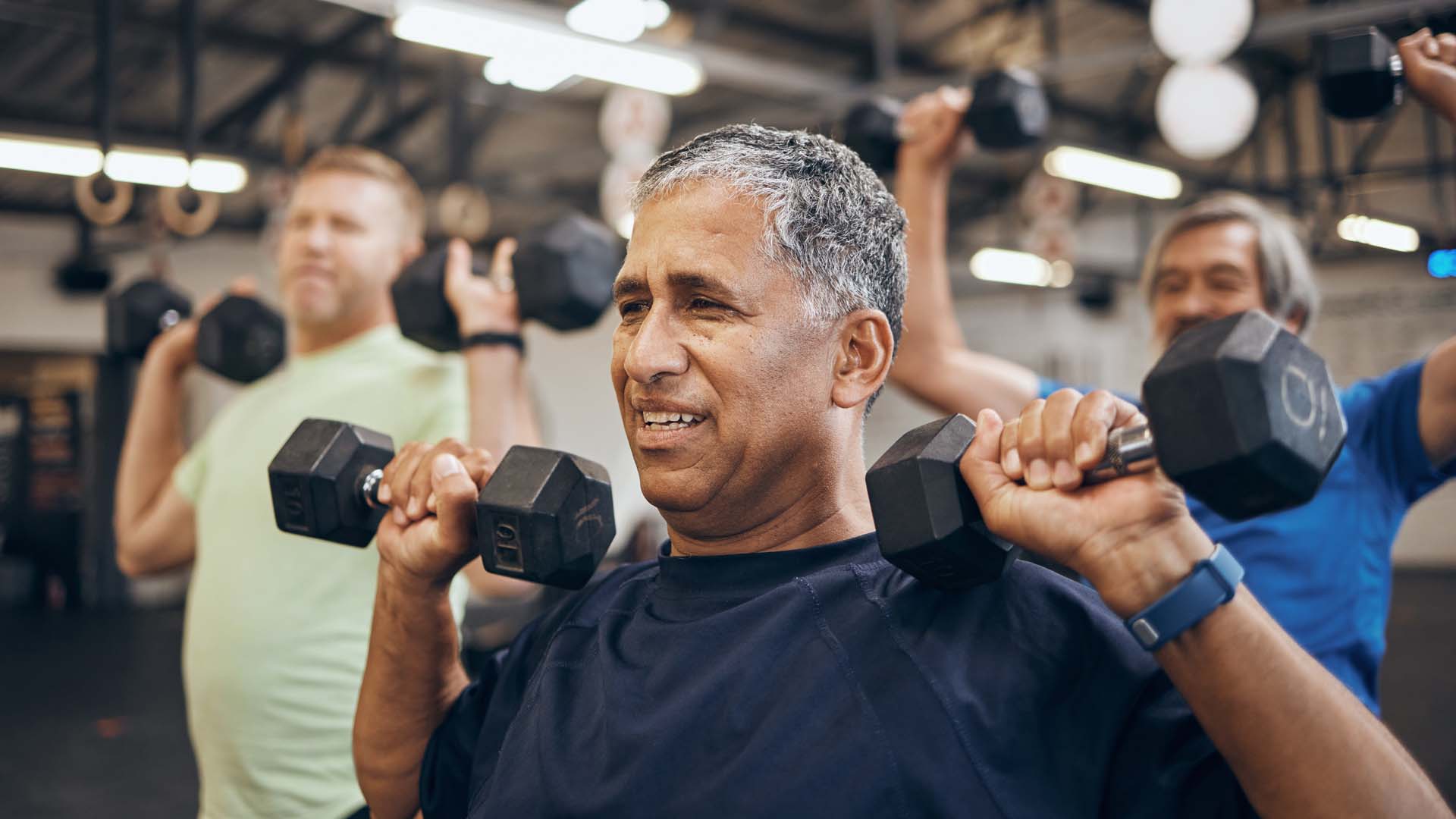Walk yourself happy: 5 ways to get the most out of your time outside
More than half of us are walking to help our mental health – here’s how it works.

More than half of us are walking to help our mental health – here’s how it works.

There’s something about going for a walk that makes you feel better. It could be the exercise, the fresh air, or just the sights, sounds and smells.
Now, research conducted by the charity Nuffield Health as part of its Healthier Nation Index has revealed that 54% of over-55s use going for a walk as their go-to mental health aid.
If walking is something you use to boost your mood or clear your mind, we’ve got some great advice on how to increase its mental health benefits.
Scientific research has shown that walking can help with depression, it can improve your health and even protect against problems stemming from ageing. It’s why so many of us choose this simple act of putting one foot in front of another as a way of feeling better.
“People are beginning to realise how interconnected our mental and physical fitness is," Lisa Gunn, Nuffield Health’s mental health prevention lead, told Saga Magazine. "Staying active by taking a regular walk not only helps to maintain your physical wellbeing but also helps to maintain a healthy mind."
Gunn adds: "Those who are active on a regular basis, even in small amounts, are less likely to have poor mental health. The reason for this is that when you start moving, your mind releases feel-good chemicals such as dopamine and serotonin, whilst reducing the body’s stress hormones, such as cortisol.
"The good news is that even a five-minute brisk walk can boost your mood, so you’ll be able to feel the positive effects almost straight away.”
If you haven’t already given this easy form of exercise a go, then what's stopping you?
Gunn says: “If you’re looking to walk more, try gradually building up from a short stroll to more regular or longer walks. Going for walks in new areas, or with a friend, or sometimes putting on a podcast, can help keep your walking varied and interesting.”
If you already walk regularly there are lots of ways to boost mental health benefits as you go. We’ve got a few to get you started.

It can be difficult to find peace and quiet sometimes – and being bombarded with noise can be bad for your health.
Swedish researchers found that people exposed to constant traffic noise are more likely to be obese; a study of a large sample of 35-100-year-olds in Ontario, Canada, found a clear link between traffic noise and diabetes; and a University of Michigan study found people living in a noisier environment had a 36% greater risk of getting Alzheimer’s.
Silence can be restorative and even more soothing than gentle music. When you set out for a quiet walk it only takes two minutes for our bodies to start to reap the benefits. In fact, the sound-processing part of our brain doesn’t just pause when the noise stops, it actually responds to the silence.
Best-selling writer Annabel Streets researched the benefits of walking for her book 52 Ways to Walk. She says: “It’s too easy to plug into a podcast or music on your headphones, so try to unplug from time to time when you go out walking. Choose somewhere quiet in nature and really enjoy the peace.”
Most of us have heard of mindfulness, but why not have a go at mindful walking?
A Dutch study found that mindful walking could significantly improve the mental health of participants. Streets says mindfulness is easy to practise while out walking, saying: “As you walk, consciously observe the sights, sounds, smells, and even the physical sensations. Try walking somewhere new and look around you as you walk.
“It’s only natural that thoughts and feelings will come up as you walk, so afterwards take a few moments to reflect on your experience. Consider any thoughts or feelings that arose. You might find writing down how you felt can help too.”

If you find it hard to switch off, then you may find listening to a walking meditation app makes a difference. There are a host of apps and podcasts to choose from, but you could try one of these free ones by health company Bupa to get you going.
Solo walking suits reflection and meditation, but with levels of loneliness in the UK at a record high, joining a walking group could transform your life.
Research analysing the results of 21 studies on the benefits of walking groups found a "statistically significant drop" in feelings of stress and depression among regular group walkers. Anthropologists also found that when we walk with others we experience feelings of social connection, acceptance, belonging and safety. There are free walking groups across the UK.

Louise Quirk is a counsellor and wellbeing walk leader. She says: “Some people who join have never walked in a group before, some join because they are lonely and others for their mental health.
“The groups bond so well, no one is excluded, they support each other yet can find time to be by themselves too. There is something about walking in a group that encourages people to open up and share what they are feeling. So many people say to me afterwards that our group walks have really helped them get things back into perspective again in their lives.”
This is a simple yet effective method for regaining control of your mind when anxiety threatens to take over. This tool is used by counsellors, NHS trusts and mental health charities.
It’s not only about counting backwards – the technique invites us to focus on our senses and our breathing. It’s great to use when you are out walking.
Focus on what you can see. Is it the sky, a tree, a building, a person? Even a tiny detail like a flower can be enough to ground you. Let your eyes wander and take in your surroundings.
Feel your environment through touch. The pavement beneath your feet, the wind on your skin, the feel of your clothes – these sensations can anchor you in the present moment.
Listen to the world around you. Birds chirping, cars passing, leaves rustling – these sounds can be a soothing distraction from your thoughts.
Engage your sense of smell. Perhaps there’s a hint of coffee, freshly cut grass, or even the clean, open air. Let the scents transport you to the present.
Taste might seem odd for a walking exercise, but even the slightest sensation – the dryness of your mouth, a lingering taste of coffee – can bring you back to the here and now.
Phillipa Cherryson is senior digital editor for Saga Magazine. Phillipa has been a journalist for 30 years, writing for national newspapers, magazines and reporting onscreen for ITV. In her spare time she loves the outdoors and is an Ordnance Survey Champion and trainee mountain leader.
View author page
We examine the science and how to best look after our brain as we get older.

Want to start winter mornings feeling energised? Follow these five simple tips.

Expert nutritionists break down the most important foods to eat in each decade as we get older.

Your neighbourhood pharmacist now offers a surprising number of services.



10 simple alternative items that can have a big effect on your health – without depriving you.


New measures for GP appointments are in the headlines, but what effect will they have for you when it comes to getting to see a doctor?

Everything you need to know about the lung infection, and how you could be ill with “walking” pneumonia without realising it.